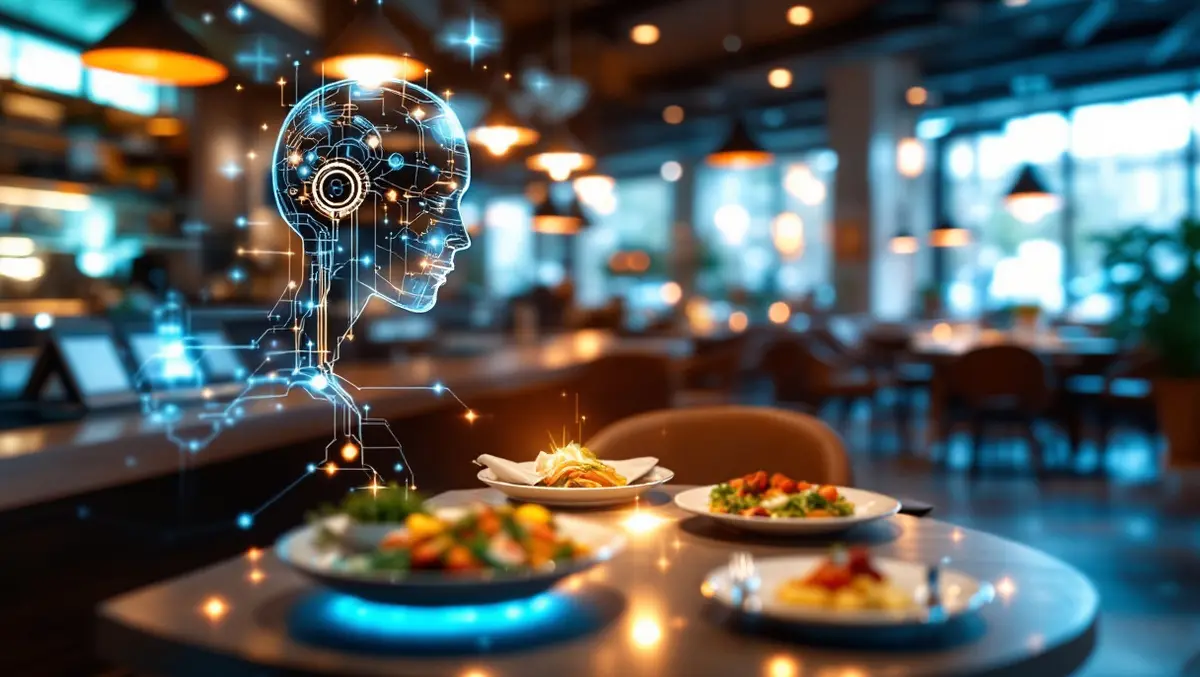
AI & personalisation drive new luxury demand in Aussie dining
Research from SevenRooms indicates that artificial intelligence (AI), heightened consumer expectations for personalised luxury, and a focus on personal connections are reshaping the hospitality landscape in Australia.
The Australian Restaurant Trends Report, based on surveys of Australian restaurateurs and diners and an analysis of transactional data from SevenRooms' platform, highlights that two-thirds of restaurants in the country have already adopted AI, and almost all report tangible benefits.
The report found that 65% of Australian restaurants are currently using AI, with 99% of those operators noting measurable advantages such as increased productivity, improved efficiency, faster decision-making, and enhanced customer service and forecasting.
AI is most frequently utilised by restaurants in marketing (46%), customer service (37%), and data analytics (36%). Other areas where AI has been implemented include menu development (25%), reservations processing (27%), revenue management (21%), staff hiring and training (20%), and dynamic pricing (18%).
Hospitality operators cited improved service and the ability to scale personalised experiences as additional major benefits. Despite this, only 27% of operators use AI for reservations, even though 74% of diners are comfortable with AI-assisted bookings and over a third are happy for AI to modify or book reservations when running late.
Allison Page, Co-Founder & Chief Product Officer at SevenRooms, commented, "Hospitality is both an art and a science, and we're seeing firsthand how embracing the science enables the art. Operators are using tech, data and AI to streamline service and scale personalized experiences in ways that weren't possible before. This report is a roadmap for how restaurants can deliver more memorable moments while running smarter, more profitable businesses."
Australian diners are increasingly seeking more than high-quality food, with a growing appetite for personalised and luxury experiences. According to the report, 74% of consumers stated they are more likely to return to a restaurant after a unique experience, and a similar proportion are willing to spend extra on custom features such as curated platters (56%), commemorative menus (47%), or tailored tasting menus (57%).
Paul Hadida, Managing Director, APAC GTM, SevenRooms, said, "Australian diners are looking for more than a meal today. They want elevated, luxury experiences paired with exceptional hospitality. By adopting smarter systems and offering tailored experiences that extend beyond the dining room, restaurants can exceed rising expectations, foster deeper guest connections and build lasting loyalty.
"Those that embrace AI and automation, not to replace, but to enhance the human touch, in areas like reservations, marketing and guest feedback, will be best positioned to thrive. With strong adoption rates and clear ROI already emerging, we expect even more venues to invest in tech that powers the future of hospitality."
The report notes that most Australians are willing to spend up to AUD $97 per person on a meal, with many consumers willing to indulge in upgraded experiences despite economic concerns. Experiences such as live music, themed menus for holidays, or cooking classes are cited as strong drivers for repeat business and increased revenue.
Personalisation remains significant in the sector, with 82% of diners indicating that personal interactions and a welcoming atmosphere are decisive factors for repeat visits. Operators are leveraging AI tools to track guest preferences, such as specific dietary requirements or seating options, aiming to ensure these are noted and acted upon for future visits. Nonetheless, 41% of restaurateurs reported challenges in identifying which guests to personalise experiences for and 29% said they do not have adequate tools for effective personalisation.
Personal acknowledgements, such as greetings from hosts or a chef's table visit, were highlighted as valuable by customers. There is also unmet demand for promotional offers tied to special occasions, with 55% of consumers wanting birthday or anniversary promotions, yet 45% of operators currently not providing these.
Restaurants are diversifying their revenue streams by selling non-meal items. The report reveals that 77% of consumers would purchase retail products from venues, such as pantry items (34%), cookbooks (19%), kitchenware (17%), at-home meal or cocktail kits (22%), and subscriptions or online classes.
In terms of discovery, the survey shows 95% of Australian diners use online platforms like Google, social media, and media sites to find new restaurants, with Gen Z most likely to use social media but only 8% of all diners discovering venues via influencers. Restaurants are increasingly focused on organic and paid Google strategies, with 42% and 48% of operators, respectively, planning investment in these areas for 2025. Operators are also seeking brand collaborations, with 42% intending to expand these efforts.
Communications preferences are shifting, according to the report, with 47% of Australians preferring to connect with restaurants via text message—a channel which operators say returns a 24X average ROI on marketing campaigns. Email remains the most popular channel for promotions (74%), with targeted, automated campaigns generating an 11-fold increase in revenue compared to mass emails. Despite these results, only 38% of hospitality operators plan to invest in text marketing next year, while prioritising social media (86%) and email (85%) as main marketing platforms.
The research underpinning the report was conducted via online surveys with 1,000 Australian consumers and 258 hospitality sector decision-makers, and supplemented by anonymised platform data from Australian SevenRooms venues.


